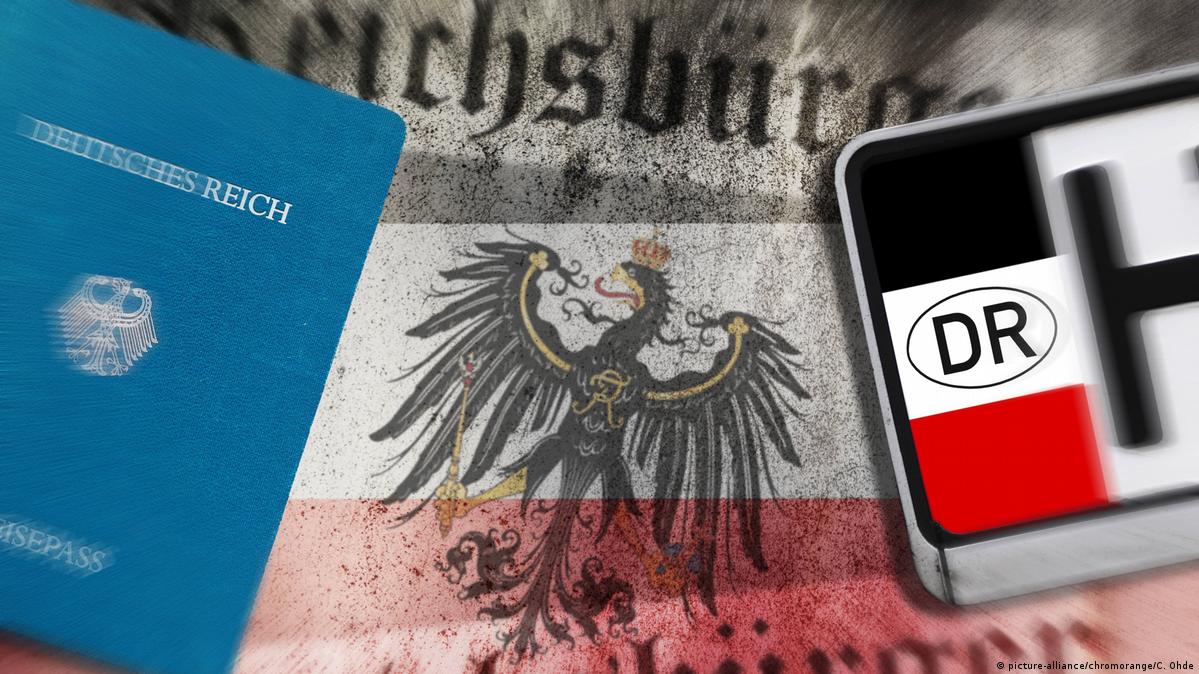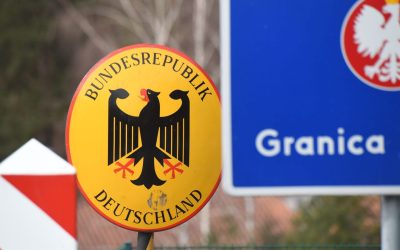What is Germany’s ‘Reichsbürger’ movement?
DW – They are radical and violent and do not recognize Germany’s democratic state. In recent years, the Reichsbürger have drawn the attention of authorities. Who are they, and what kind of danger do they pose?
Members of the Reichsbürger movement deny the existence of Germany’s post-WW2 Federal Republic. They believe the current state is no more than an administrative construct still occupied by the Western powers — the US, the UK and France. For them, the 1937 borders of the German Empire still exist.These are the self-proclaimed “Reichsbürger,” which translates as “Citizens of the Reich” that was founded in 1871 — and they are not averse to violence.
The Reichsbürger movement is made up of a number of small groups and individuals, located mainly in the states of Brandenburg, Mecklenburg-Western Pomerania and Bavaria. They do not accept the legality of the Federal Republic of Germany’s government authorities. They refuse to pay taxes and have declared their own small “national territories,” which they call the “Second German Empire,” the “Free State of Prussia” or the “Principality of Germania.”Members of these groups print passports and driver’s licenses for themselves. They even produce T-shirts and flags for advertising purposes. Reichsbürger disregard the fact that such activity is illegal and not recognized by any German authority. They proudly announce their intention to “carry on the fight against the Federal Republic of Germany” on their websites.
Just crackpots?
Germany’s domestic intelligence agency, the Office for the Protection of the Constitution (BfV), estimates there to be around 21,000 Reichsbürger in Germany, with 5% of them classified as far-right extremists. Most are male. On average they are over 50 years old and ascribe to right-wing populist, antisemitic and Nazi ideologies and are spread out throughout the country. A district court judge in Saxony-Anhalt has described them as “conspiracy theorists” and “malcontents.”
The Reichsbürger underwent radicalization during the COVID-19 pandemic when they gained traction from the “Querdenker” movement and refused to adhere to any restrictions imposed by authorities they do not recognize.
Despite their rejection of the system, Reichsbürger inundate German courts with floods of motions and objections filed against court orders and payment demands issued by local authorities. Regardless of content, authorities are required to process every properly filed, formal request they receive.
Mayors from a number of communities have protested that, beyond having to deal with so much senseless work, they have also been attacked by Reichsbürger, verbally and even physically. Members often film such attacks and then post them online.
Extreme acts of violence
The group’s affinity for firearms and for stockpiling weapons has left authorities concerned. The latest BfV report on the Reichsbürger said they are ready and willing to commit “serious acts of violence.”Police have found large caches of weapons and ammunition during house searches — and Reichsbürger members are continuing to arm themselves.Since a significant part of the group consists of former soldiers of the Bundeswehr and the NVA (National People’s Army of the GDR), among them men with special military training, the group is considered particularly dangerous.
In the past few years, German authorities have revoked weapons permits for hundreds of the movement’s followers.In recent years, Reichsbürger followers have carried out attacks on police officers during raids — with defendants often arguing that they have a right to defend “their property.”In Höxter, North Rhine-Westphalia, a group from the “Free State of Prussia” attempted to build up its own militia by smuggling in arms from outside the country in 2014.In 2016, a police officer was shot and killed by a member of the Reichsbürger movement during a police raid to seize the man’s arsenal of over 30 firearms that he had illegally hoarded.
In 2021 several Reichsbürger were among protesters against the COVID restrictions who stormed the steps of the Reichstag building in Berlin.In 2022, investigators found a group to have planned, among other things, to storm the parliament in Berlin (the Reichstag) and to attack the country’s power supply, and to depose the federal government in order to then take power. There were even plans for certain individuals to take over important ministerial posts for the moment of the “takeover.” According to the Federal Prosecutor’s Office, there were plans to form a transitional government that would negotiate the new state order in Germany with the Allied victorious powers of World War II — first and foremost with the Russian Federation.




